Emma Dove is an artist and documentary filmmaker originally from the Black Isle and currently working between Glasgow and the Scottish Highlands. Her work is interested in exploring relationships to place and stories hidden within the seemingly banal.
Mark Lyken is a multimedia artist based in Glasgow, he was first introduced to Dove during his Sublime artist’s residency at Cromarty Lighthouse during 2012. Lyken creates painting, sculpture, film and sound work with a current focus on installation and composition. Recent work has been concerned with revealing the musicality of the environment and beauty within the ordinary.
Mirror Lands is a film and sound installation exploring diverse relationships to The Black Isle.
The work weaves together sonic elements of the natural world with an original score. Contrasting local voices intermingle, rise and fall, sharing their personal memories, feelings and perceptions of place. Preconceived ideas of Highland life are challenged and the complex interactions between nature and culture are brought to the fore in this unique audio-visual experience.
The project is a collaboration between Mark Lyken, Emma Dove and Aberdeen University Ecologists from the Lighthouse Field Station in Cromarty.
Mark and Emma took some time to answer some questions about their process and the creation of Mirror Lands:
What your workflow has been like from day to day?
The first four months of Mirror Lands were basically the inverse of what the last four months have been for us. From July to October last year we were outside every day, cycling to and from the Lighthouse Field Station in Cromarty where we were based, gathering shots and audio quite intuitively and speaking to lots of local people. The last four months, on the other hand, we’ve barely been outdoors and we’ve hardly seen a soul! To begin with it was sifting through hours and hours of audio and video, gradually refining what we wanted to use, then gradually piecing together something that felt representative of those first four months. The project also gave us a chance to realise a long standing dream of setting up our own “Soft Error” label. Our first release is a Mirror Lands box set that launches at the films Premiere with Cryptic at the CCA on March 6th.
Where do you look for inspiration?
Our friends are very inspiring folks and are probably the first port of call for us when bouncing ideas around. Living in the Southside of Glasgow, The Glad Cafe is definitely a hub of grassroots creativity and has a vibrant community vibe – you can just pop in there and soak it all up.
We could fill a whole page with the films & filmmakers that inspire us but a few special ones would be Nicholas Philibert’s “La Ville Louvre”, Thomas Reidelsheimer’s “Rivers and Tides” and “Sleep Furiously” by Giddeon Koppel. We are still discovering a lot of fantastic work – we recently watched ‘Silence’ by Pat Collins and we were literally in awe! On Mirror Lands we were thinking a lot about how different sounds and images work together, so I think we took a lot from sound artists who work very creatively with field recorded material, such as Cathy Lane, Annea Lockwood, Chris Watson, Yannik Dauby. We are lucky enough to have both Cathy Lane and Chris Watson joining us as guest speakers at our preview night. The fact we are opening with Cryptic and have two of our influences lending their support to the project is huge for us! In a more direct sense, we also drew a lot of food for thought from the research being carried out at the Lighthouse Field Station in Cromarty where we were based for the summer. There’s definitely a lot to be said for coffee breaks with a bunch of scientists in a Field Station staff room.
What tools do you use?
A compact run and gun style camcorder, which is especially useful when your main mode of transport is by bicycle! We also use a digital recorder for field recording and some different microphones, including some ‘binaural’ headphones and an underwater hydrophone, which are great fun.
As ever, the more equipment you work with, the more you feel you need… But budget and, as I mentioned, bikes, help rein that in!
Why did you choose The Black Isle?
It chose us, ha, ha. Emma was brought up on the Black Isle and Mark was an Artist in Residence on the Sublime Residencies at the Lighthouse Field Station in Cromarty in 2012. It was through both having worked with the Field Station during Sublime that ideas for Mirror Lands began to percolate and we then decided to return and work on a collaboration together.
Was there a reason you chose to focus on the sea?
The Lighthouse Field Station research focuses primarily on marine mammal and seabird behaviour as there is a large dolphin population in the Cromarty Firth and wider Moray Firth. We had previously joined the Ecologists in their research rib on Dolphin ID field trips – an activity which gives you a very specific experience and relationship to that patch of sea. The initial idea for Mirror Lands was to explore different people’s understandings, perceptions and relationships to that same patch throughout the community. This developed in to exploring a wider understanding of place, but I think the sea is fundamental to most people’s experience of the Black Isle, whether active or passive, it’s impossible to ignore it completely…
What sort of relationship is there between nature and culture and what made you want to explore it?
Our starting point for exploring the relationship between nature and culture was looking at the representation of the ‘natural’ world in natural history programming. But when you start thinking about the question of what is nature and what is culture you realise that neither exists independently of the other. In a chat with Prof. Paul Thompson at the Field Station about this, he mentioned, ‘But what is natural to an animal in the sea? Do they differentiate between a cliff wall and the harbour wall?’ I think this sums it all up quite well… But what we did come to realise is that there is far more that we don’t know about both the ‘natural’ and ‘human’ worlds than what we do – we barely touched upon an understanding of place during our time in Cromarty yet we learned so much from a handful of different conversations. Of course the more questions you ask, the more questions you have…
The film launches as part of Cryptic Nights at the CCA in Glasgow on 6th March and then moves on to Inverness Museum & Art Gallery (IMAG) from March 8th-29th.
Mark: Website | Facebook | Twitter
Emma: Website | Facebook | Vimeo | Twitter
//////
Want to read more blogs by artists? Look here.
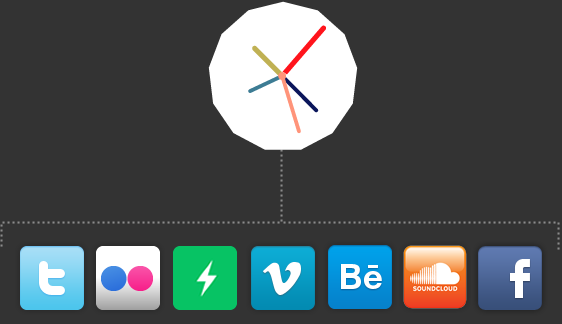
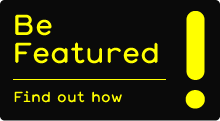
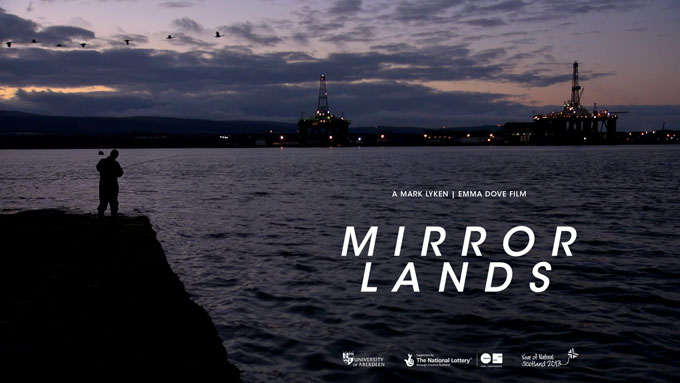
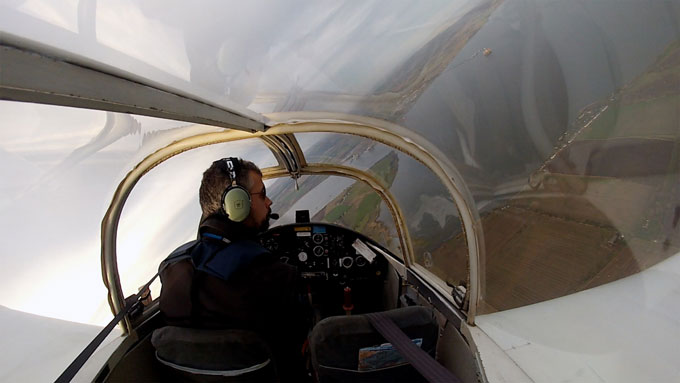
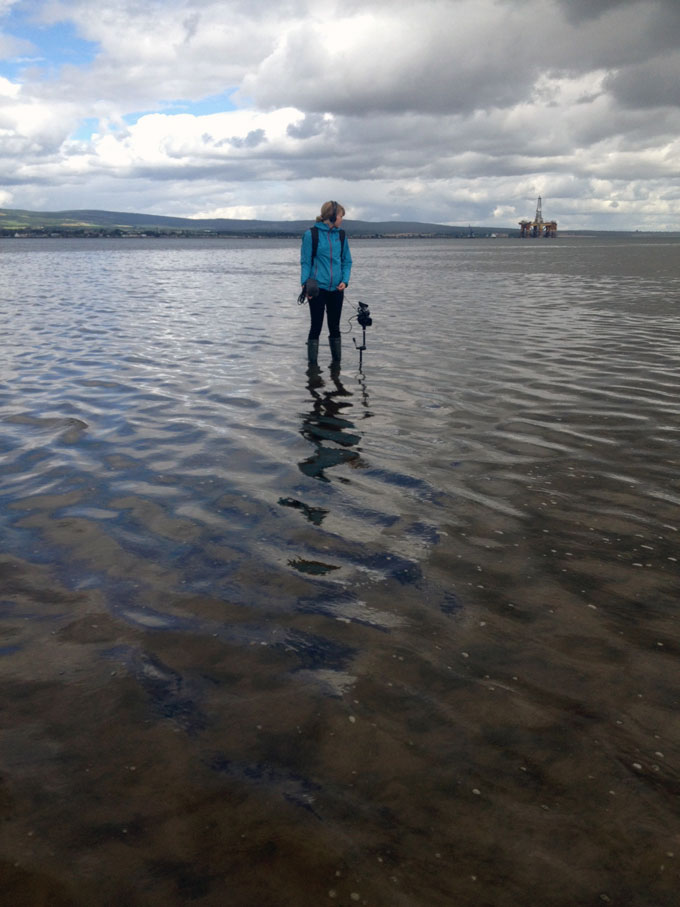
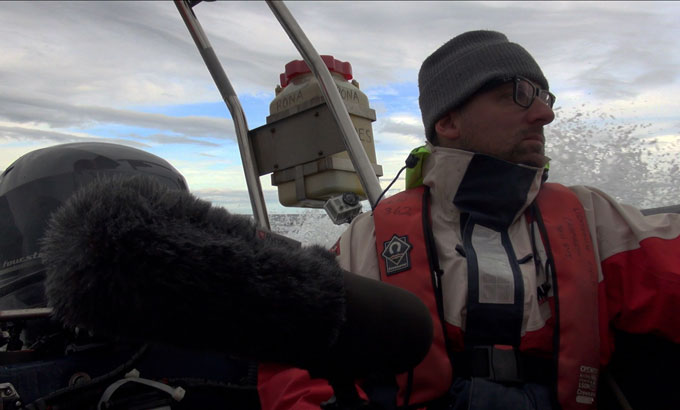
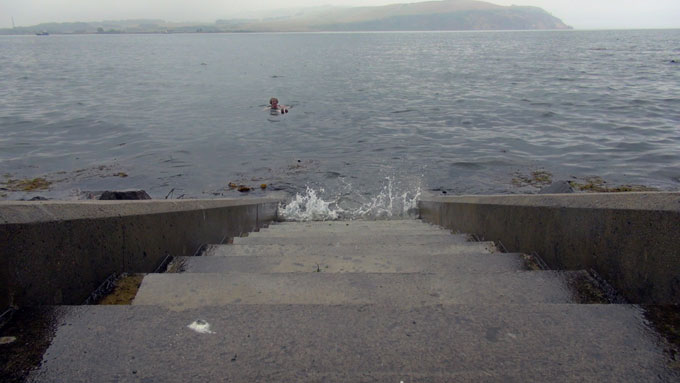

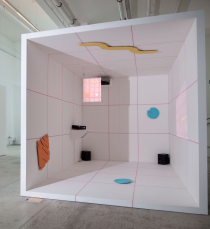
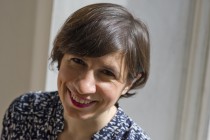









Comments